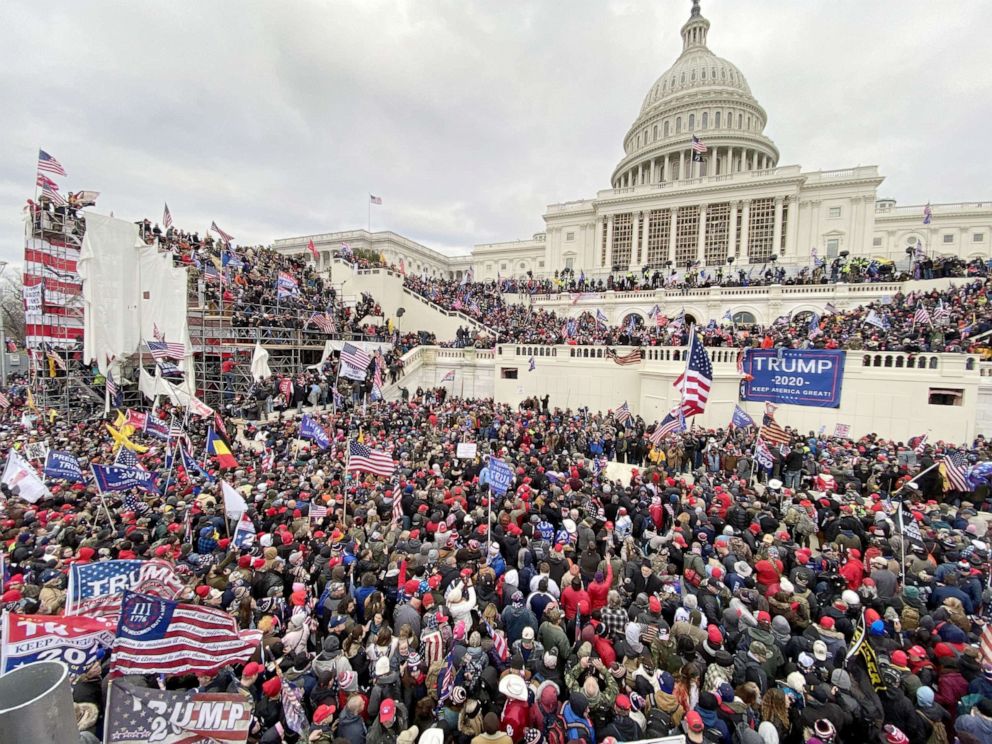Appeals court picks apart Trump's efforts to withhold Jan. 6 records from Congress
The judges questioned whether an ex-president can claim executive privilege.
Federal judges questioned whether former President Donald Trump has the authority to invoke executive privilege during a hearing on Tuesday regarding the former president's efforts to block the release of White House records to the Jan. 6 House committee investigating the Capitol insurrection.
The nearly four-hour hearing was at times contentious as a three-judge panel of the U.S. Court of Appeals picked apart multiple arguments presented by members of Trump's legal team, who argued that the records requested by Congress were overbearing and lacked legislative purpose, and that the records should be "designated as privileged and or otherwise restricted under the Presidential Records Act."
The court questioned whether a former president has the power to claim executive privilege after President Joe Biden determined that he will not block the tranche of documents sought by the House committee's investigation, claiming it is in the best interest of the United States for the documents to be handed over.
"We can't think of any other situation in which the former president gets to make that call," Judge Patricia A. Millett said.
"Why is it that the former president is the one who gets to decide whether or not the statutory criteria for the appropriate legislative request is satisfied?" Millett added.
Judge Ketanji Brown Jackson asked Trump's attorney, "Who decides when it's in the best interest of the United States to disclose presidential records? Is it the current occupant of the White House or the former?"
House General Counsel Douglas Letter argued that the current president is in the best position to weigh in on executive privilege in relation to national interest.
"It is the current president is in the best position, best by far, to determine what is in the interests of the executive branch at that time," Letter said.
Trump attorney Justin Clark, who also served in a senior role on the former president's reelection campaign, argued that Trump could sue to stop a current president from using a previous administration's records and that it could be up to the courts to decide regarding executive privilege.

In one heated moment, Judge Millett appeared to get irritated with Clark as he pushed back on the nature of executive privilege.
"Stop, please stop," Millett told Clark as Clark again sought to explain the executive privilege doctrine.
In August, the Jan. 6 committee requested documents from Trump's White House currently held in the National Archives, including White House call and visitor logs, emails and notes dating back to the lead-up to the insurrection. Trump promptly sued, demanding that the records be blocked from release and arguing that, despite leaving office, he could still invoke executive privilege to keep them secret.
No indication was made on Tuesday regarding when to expect a ruling on the matter.
Trump could bring the case to the Supreme Court if the court were to reject the former president's request to block the documents.




